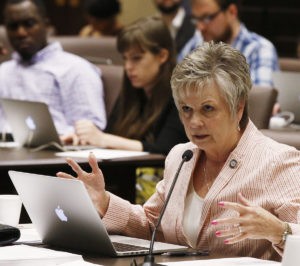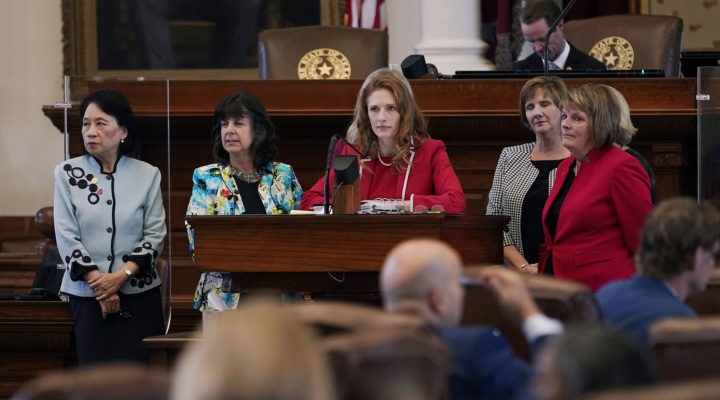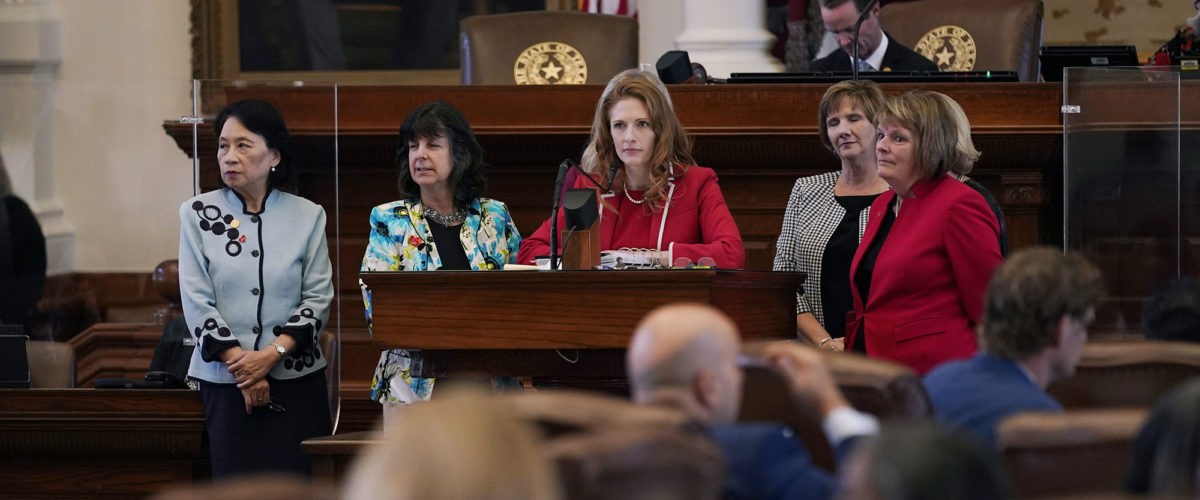Some of the most restrictive anti-abortion bills in recent history have made their way through state legislatures this session, with at least five states already passing bills considered near-total bans on abortion.
Many of the bills already passed or on the verge of passing are likely to be challenged in court by abortion-rights activists and in some cases by medical professionals who believe the laws are written so broadly as to endanger their ability to practice medicine.
Among the most novel of approaches this year is a bill passed by both houses of the Texas Legislature and now awaiting Gov. Greg Abbott’s almost-certain signature. Not only does Senate Bill 8 ban abortion as early as six weeks into a pregnancy, it gives any citizen standing to sue providers who they believe violate the law.
Not only does Senate Bill 8 ban abortion as early as six weeks into a pregnancy, it gives any citizen standing to sue providers who they believe violate the law.
The new Texas law is one of a rash of “fetal heartbeat” laws being advocated in state capitols. However, the Texas version adds a twist, as reported by the Houston Chronicle: “Proponents hope that by turning enforcement of the new guidelines over to everyday citizens, rather than a government agency, they can avoid the legal challenges that have delayed so-called heartbeat bills in other red states from taking effect.”
The law is considered a near-total ban on abortions because it outlaws the procedure once a fetal heartbeat is detected, which may be as early as six weeks of pregnancy, compared to the current 20-week cutoff for abortion in Texas. Because many women do not know they are pregnant as early as six weeks in, the tighter restriction would make it nearly impossible to legally terminate a pregnancy.
The Chronicle reported: “Hundreds of doctors and lawyers have spoken out against the legislation in recent weeks, both in writing and in public testimony, warning it will create chaos in the court systems and block abortion access that is still federally protected. Legal experts have also questioned the approach, saying it conflicts with constitutional limits on who has a right to sue. They say it could be struck down even by conservative judges.”
Four other states already have passed new laws this session that are considered near-total bans on abortion, according to data compiled by the Guttmacher Institute. Those are:
Arkansas. In March, Gov. Asa Hutchinson signed Senate Bill 6 that bans all abortion except when the woman’s life is severely endangered.
Idaho. In April, Gov. Brad Little signed House Bill 366 that bans abortion at six weeks of pregnancy if the U.S. Supreme Court overturns the Roe v. Wade decision that in 1973 legalized abortion.
Arkansas has been among the most prolific legislatures in passing new abortion restrictions this session.
Oklahoma. Also in April, Gov. Kevin Stitt signed House Bill 1102 that defines all abortions as “unprofessional conduct” for physicians, allowing physicians in some cases to be charged with homicide. The ban includes exceptions when the patient’s life or physical health is endangered. Stitt also signed House Bill 2441 that bans abortion after a fetal heartbeat is detected. And for good measure, the governor also signed Senate Bill 918, which would ban all abortions if the U.S. Supreme Court overturns Roe v. Wade.
South Carolina. In February, Gov. Henry McMaster signed Senate Bill 1, another fetal heartbeat bill. The new law was immediately challenged in court, and a federal district court temporarily blocked the new law.
Six states already this session have enacted new laws that place additional restrictions on abortion providers as a deterrent against abortion. These include Arizona, Arkansas, Indiana, Kentucky, Oklahoma and Montana.
Arkansas has been among the most prolific legislatures in passing new abortion restrictions this session, with Gov. Asa Hutchinson signing at least six such bills into law.

Oklahoma state Sen. Julie Daniels in a 23018 file photo. (AP Photo/Sue Ogrocki)
As a sign of the continued contentiousness of abortion-related legislation, CNN reported on the sharp words of both supporters and opponents of the three bills passed in Oklahoma.
Gloria Pedro, regional manager of public policy and organizing for Planned Parenthood of Arkansas and Oklahoma, said of the heartbeat bill: “Aside from being unconstitutional, it’s incredibly unfair and patronizing to women. We’ve seen bans like this fail time and time again, so it’s a real waste of taxpayers’ money and it just shows that the Legislature has their priorities wrong in the middle of a pandemic.”
State Sen. Julie Daniels, who co-sponsored two of the bills, told CNN: “You do not stop working to protect life just because you have, you know, a high hill to climb to get the bill to go into effect, and this is a very real way of saving life. And so we continue to chip away at it in hopes that one day, there will be a different decision at the U.S. Supreme Court level and that this issue, which rightly and properly belongs with the states and not the federal government, will once again be returned to the states.”


